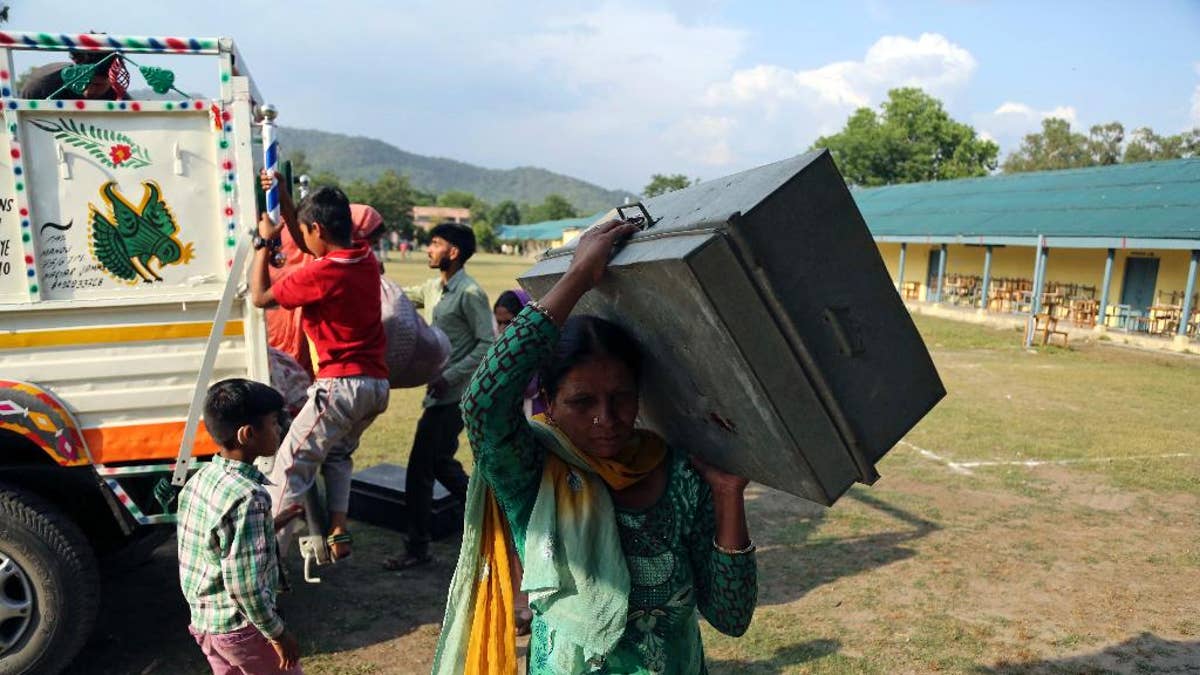Al-Qaeda said for the first time it is active in the Indian-controlled portion of Kashmir, announcing Thursday on a linked propaganda network that a militant from an indigenous rebel group would lead a new outfit of fighters opposing Indian rule in the disputed region.
The announcement was made by the Global Islamic Media Front, which said Kashmiri militant Zakir Musa will head al-Qaeda-linked Ansar Ghawzat-ul-Hind.
Musa recently left Kashmir's largest indigenous rebel group, Hizbul Mujahideen, and is believed to have been joined by less than a dozen others.
Previously, no global jihadi groups have openly operated in Kashmir, a territory divided between India and Pakistan but claimed by both entirely.
The propaganda network said the new group will "repel the aggression of tyrant Indian invaders, and through jihad, and with the aid of Allah ... we will liberate our homeland Kashmir."
In 2014, al-Qaeda announced the creation of a cell in the Indian subcontinent, but it failed to attract significant support.
Musa issued a series of audio messages in April saying that Kashmir's struggle was for the Islamic cause and had nothing to do with nationalism, which would mark an ideological shift for some militants in Kashmir, where rebels have mainly fought for Indian-controlled portion to become independent or merge with Pakistan.
Separatist leaders, who challenge India's sovereignty over Kashmir, have repeatedly rejected the presence of outside groups, including al-Qaeda, and have accused India of portraying the Kashmiri struggle as extremist.
Senior Indian police officer S.P. Vaid said troops will continue to fight militants irrespective of their affiliations.
"Anyone who picks up gun to fight against the state is a terrorist to us. Their party affiliation hardly matters to us," Vaid said.
"Anyone who picks up gun to fight against the state is a terrorist to us. Their party affiliation hardly matters to us."
However, he said police would closely monitor the impact of Thursday's announcement on militancy.
"It's hard to predict any impact immediately, though there is a concern that it might sway youth toward the radical ideology," he said.
Pakistan-based rebel group Lashkar-e-Taiba called the announcement a ploy by India to defame Kashmir's struggle for freedom.

Indians fleeing from their village arrive at a relief camp in Nowshera sector, along the highly militarized Line of Control that divides the region between India and Pakistan, Saturday, May 13, 2017. (Associated Press)
It said in a statement that groups like al-Qaeda "are being brought up to label the legitimate freedom struggle as terrorism."
India blames Lashkar-e-Taiba for a 2008 attack that left 166 people dead in India's commercial capital of Mumbai.
Musa was a close aide of Burhan Wani, a charismatic Kashmiri rebel leader whose killing last year triggered open defiance against Indian rule.
Wani's death and the resulting public fury brought the armed rebellion into the mainstream in Kashmir and revived a militant movement that had withered in recent years to only about 100 fighters in scattered rebel outfits. Officials say since Wani's killing, at least 100 young men have joined rebel ranks, some of them after stealing weapons from soldiers and police.
His death also cemented a shift in public behavior, with people displaying anger at Indian rule openly and violently when troops raid villages to hunt rebels.
Rebel groups have been fighting against Indian rule since 1989. Nearly 70,000 people have been killed in the armed uprising and the ensuing Indian military crackdown.
Anti-India sentiment runs deep in Kashmir's mostly Muslim population, with most people supporting the rebels' cause against Indian rule.





















